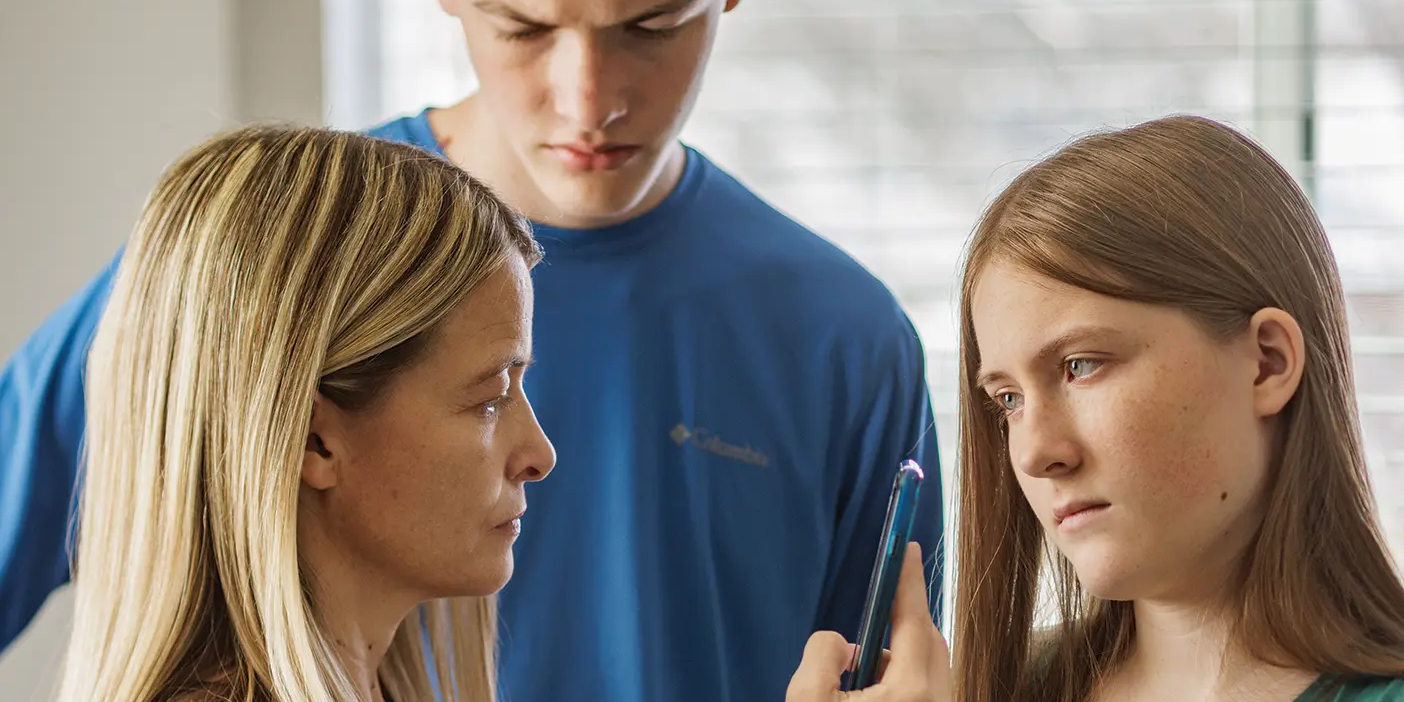Child sleep disorders are impacting parental health.

Chances are if someone in your home isn’t sleeping well, it’s affecting the whole family—and lack of sleep is particularly hard on parents. According to a new BYU study published in the journal PLOS One, parents of children with sleep disorders likely endure disrupted sleep themselves and, in turn, experience higher levels of stress.
“Stress and sleep disorders feed into each other,” says BYU public-health professor Ray M. Merrill (BA ’86, MS ’89). “Stress disrupts sleep and poor sleeping causes stress.” And the consequences of stress almost go without saying: “Chronic stress is associated with a host of health problems, including weakened immune systems and ulcers as well as anxiety and depression.”
The study analyzed more than 14,000 insurance claims from employees with dependent children and found that parents were 111 percent more likely to have insomnia and 115 percent more likely to have sleep apnea if their child had a sleep disorder. Parents with a sleep disorder were almost twice as likely to experience stress as those without a disorder, and parents who had a child with a sleep disorder were 90 percent more stressed overall.
“It’s extremely stressful as a parent when your child has a sleep disorder,” says Merrill. “Stress may result not only from the parents’ sleep being disturbed by their child but also from parents’ feelings about their child’s disorder; children with a sleeping disorder are also much more likely to have mental-health challenges like ADHD, bipolar disorder, anxiety, and depression, which is stressful for parents.”
While it’s no secret that sleep is foundational for good health, Merrill acknowledges sleep disorders and stress can make quality rest seem impossible. He offers four tips to help families maximize sleep health.
1. Get Help
Because sleep disorders are often tied to mental-health issues in children, seeking professional treatment is critical to improving your child’s sleep situation—as well as your own. “In some cases, handling sleep problems might just be a matter of treating mental-health concerns,” Merrill says.
2. Work to establish a consistent nighttime routine.
“Having a regular, set time when you sleep is important, especially for children,” says Merrill. Sticking to a repetitive set of bedtime activities can help them unwind from a busy day. It also offers the child a sense of security and teaches them how to sleep on their own.
3. Avoid eating before bed.
Most experts recommend not eating within three hours of bedtime. “If you need to eat, make it a light snack. Eating large meals, fatty foods, and caffeinated drinks before bed negatively affects sleep quality, digestion, and weight management,” says Merrill. “It interrupts the body’s circadian rhythm, which is your sleep-wake pattern and is a key regulator of other behavioral and physiological processes.”
4. Increase your physical activity each day.
Research shows that something as simple as regular walking, in addition to aiding sleep, can help manage weight, reduce cravings for sweets, ease joint pain, and boost immune function. Thirty minutes of moderate exercise three to four times per week is crucial to elevating your heart rate and helping create biological processes in the brain that lead to better-quality sleep. Pick an exercise that works for you and stick with it.












